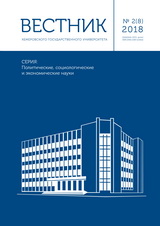Russia's integration into the world economy has had a negative impact on the socio-economic situation of single-industry towns and monopolies. The state allocates billions of dollars to support such monostructures, but the standard of living of the population is consistently deteriorating. The main reason for this situation is the
current mechanisms of state support that are focused exclusively on the creation of innovative industries. Legal acts regulating innovation support are formed in a hurry, without taking into account the specifics of the regional economy; moreover, they lack clear recommendations for the implementation of innovative projects. Grants are not provided in time, which prevents regions from implementing projects and planning their own budgets. The mechanism of providing budget funds via the development Fund of
single-industry towns, which is not a member of the budget process, places the process of spending budget funds outside the legal field, which excludes proper control over the expenditure of budget funds. In this situation the city-forming enterprises that define the main profile of education are deprived of any federal support
monotowns, single-industry settlements, budget funds, control mechanisms

















